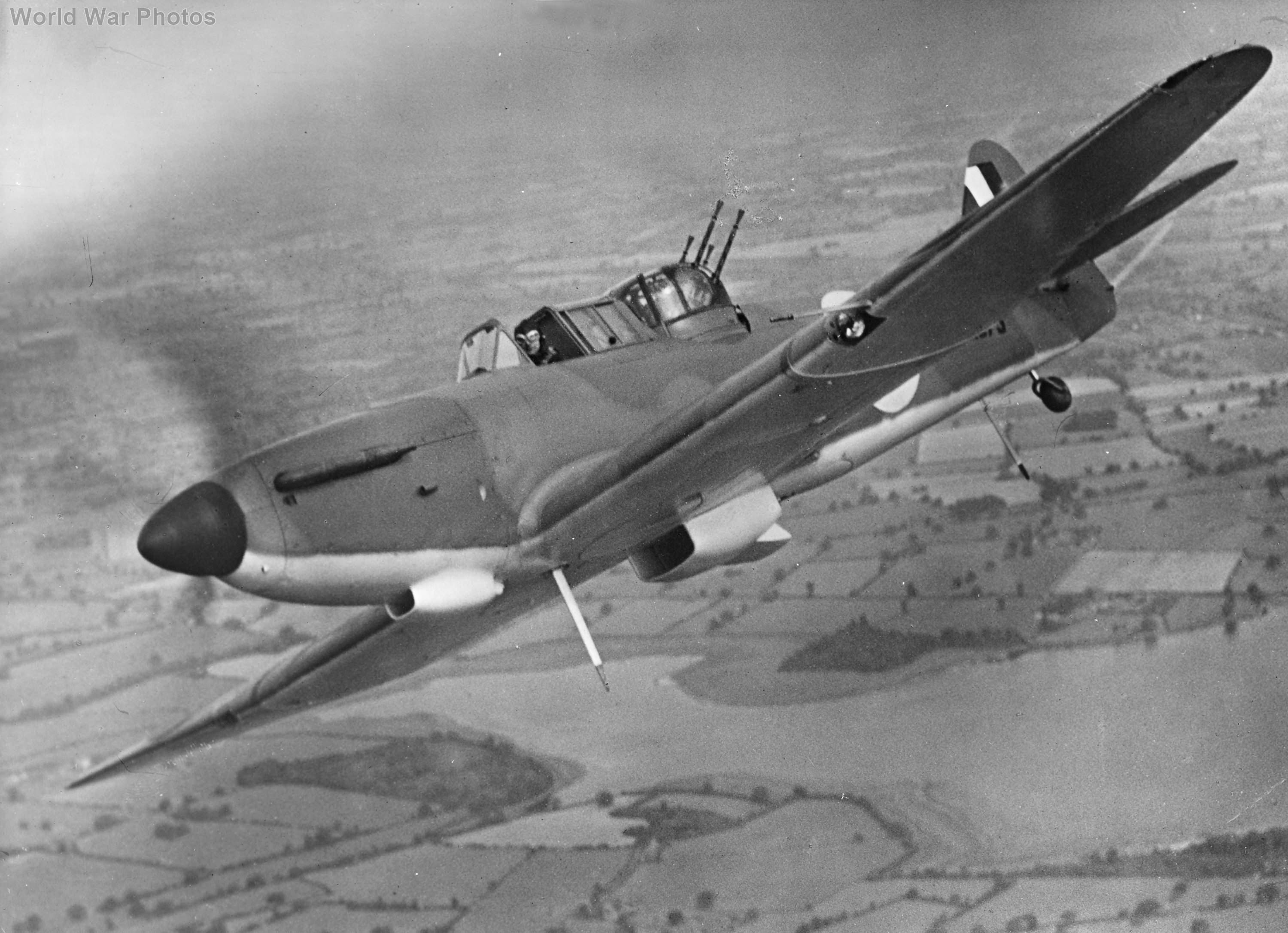The Defiant Mk I N1573, seen during manufacturer’s flight trials in the summer of 1940, displays several distinctive features that reflect the era’s rapidly evolving camouflage and identification protocols. It is shown in the B Scheme camouflage pattern, which was one of two standard disruptive patterns (A and B) used on British aircraft during the early stages of World War II.
Key details visible in the photo include:
- Fuselage Roundels: The factory-applied roundels are 42 inches in diameter, typical of RAF markings at the time.
- Fin Stripes: The fin bears eight-inch-wide stripes, covering the full height of the fin. These stripes, comprising red, white, and blue, were a common recognition feature.
The photograph likely dates to mid to late July 1940, as the under-surfaces of the aircraft appear to be painted in Sky, a color officially introduced to RAF Day Fighters earlier that month as per Air Ministry orders.
However, due to an initial shortage of the proper Sky Type S paint (which conformed to specification DTD 308), some aircraft received a temporary substitute known as Eau-de-Nil (duck egg green), leading to some variation in the appearance of the under-surface color during this period.
